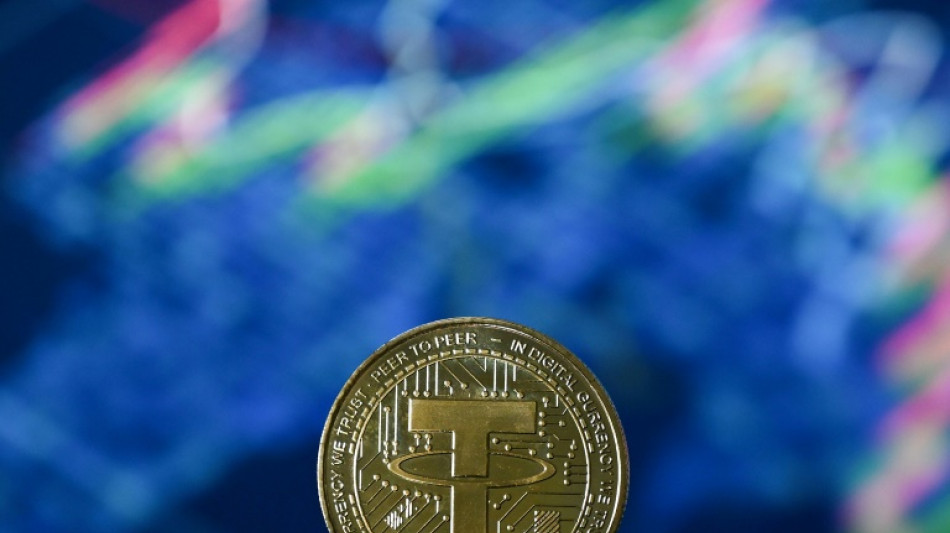
-
 King Charles III to visit Vatican in October
King Charles III to visit Vatican in October
-
Marc Marquez third on grid at Japan MotoGP as Bagnaia takes pole

-
 Philippines death toll rises to 11 as storm Bualoi bears down on Vietnam
Philippines death toll rises to 11 as storm Bualoi bears down on Vietnam
-
Donald excited Europe handled raucous crowd well at Ryder Cup

-
 Goals, guns and narcos: Hitmen plague Ecuador's beautiful game
Goals, guns and narcos: Hitmen plague Ecuador's beautiful game
-
Argentine victims of live-streamed murder laid to rest on eve of protest

-
 No USA Ryder Cup panic as fightback enters Bradley's plan
No USA Ryder Cup panic as fightback enters Bradley's plan
-
USA turns to Scheffler, DeChambeau in Saturday foursomes

-
 Trump can't spark US comeback in visit to Ryder Cup
Trump can't spark US comeback in visit to Ryder Cup
-
Trump urges Microsoft to fire ex-Biden administration official

-
 Europe takes three-point Ryder Cup lead as US gets no Trump boost
Europe takes three-point Ryder Cup lead as US gets no Trump boost
-
Three talking points ahead of the Women's Rugby World Cup final

-
 Murillo sends Marseille top in Ligue 1 with late win in Strasbourg
Murillo sends Marseille top in Ligue 1 with late win in Strasbourg
-
Kimmel boycott ends as US TV companies put him back on air

-
 Kane scores twice to reach 100 Bayern goals in record time
Kane scores twice to reach 100 Bayern goals in record time
-
'Almost impossible': Brazilian skater Sandro Dias makes history on mega ramp

-
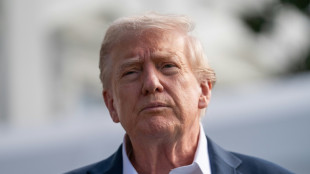 Trump targets more opponents after 'dirty cop' Comey
Trump targets more opponents after 'dirty cop' Comey
-
Sixers' Embiid eyes consistency after injury-plagued NBA season

-
 More questions than answers surround Trump's TikTok deal
More questions than answers surround Trump's TikTok deal
-
Iran sanctions look set to return as last-ditch UN push fails

-
 Sitting ducks: Venezuelan fishermen wary of US warships
Sitting ducks: Venezuelan fishermen wary of US warships
-
Nissanka ton in vain as India edge Sri Lanka in Super Over

-
 An Aussie tycoon bets billions on cleaning up iron ore giant
An Aussie tycoon bets billions on cleaning up iron ore giant
-
Civil defence says 50 killed in Gaza as Netanyahu vows to 'finish job' against Hamas

-
 Canada's Corrigan leans on Olympic experience in quest for Women's Rugby World Cup gold
Canada's Corrigan leans on Olympic experience in quest for Women's Rugby World Cup gold
-
Kolisi warns 'resilient' Boks are braced for Puma mauling

-
 Fearing US invasion, Venezuela to hold emergency drills
Fearing US invasion, Venezuela to hold emergency drills
-
Greek PM warns Israel risks losing friends
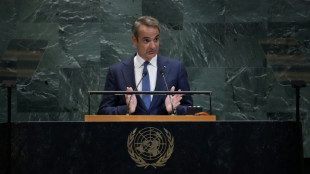
-
 Pakistani PM appeals for India talks, hails Trump role
Pakistani PM appeals for India talks, hails Trump role
-
Trump aims to make America great again amid Ryder Cup woes

-
 Trump arrives at Ryder Cup with US seeking comeback
Trump arrives at Ryder Cup with US seeking comeback
-
Europe grabs 3-1 lead as US seeks Trump boost at Ryder Cup

-
 Lufthansa planning thousands of job cuts: sources
Lufthansa planning thousands of job cuts: sources
-
China at UN warns of return to 'Cold War mentality'
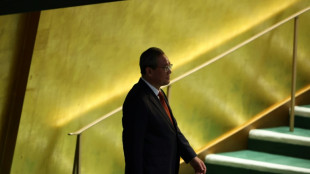
-
 England great Alphonsi expects Canada to shine in Women's Rugby World Cup final
England great Alphonsi expects Canada to shine in Women's Rugby World Cup final
-
Tottenham reject interest in reported record £4.5bn sale

-
 Man Utd boss Amorim admits uncertainty ahead of Brentford clash
Man Utd boss Amorim admits uncertainty ahead of Brentford clash
-
Zverev wins Beijing opener as Gauff launches title defence

-
 Barca duo Raphinha, Joan Garcia injured, out for PSG clash
Barca duo Raphinha, Joan Garcia injured, out for PSG clash
-
Trump hopes more opponents to be charged after 'dirty cop' Comey
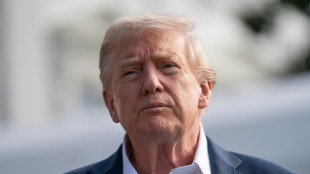
-
 US Fed's preferred inflation gauge rises, with more cost pressures expected
US Fed's preferred inflation gauge rises, with more cost pressures expected
-
Facebook, Instagram to offer paid ad-free UK subscriptions

-
 Former UK PM Blair could lead transitional authority in Gaza: reports
Former UK PM Blair could lead transitional authority in Gaza: reports
-
Netanyahu says Palestinian state would be 'national suicide' for Israel

-
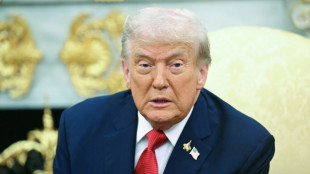 The nations and firms threatened by Trump's pharma tariffs
The nations and firms threatened by Trump's pharma tariffs
-
Trailblazing rugby chief Griffin proud of 'incredible' strides for women's game

-
 Brother of Oasis stars denies rape, other charges
Brother of Oasis stars denies rape, other charges
-
EU steps up 'drone wall' plans after Russian incursions

-
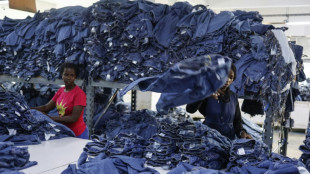 Kenyan jeans factory to fire workers as US deal expires
Kenyan jeans factory to fire workers as US deal expires
-
Arteta hails Saliba's impact as new Arsenal deal looms


Why stablecoins are gaining popularity
Stablecoins -- a form of cryptocurrency backed by traditional assets -- are gaining traction, with the US Senate set to vote Tuesday on a bill to regulate such digital tokens.
But as stablecoins move closer to the financial mainstream, experts warn that weak regulation could leave investors and the financial system vulnerable.
- What are stablecoins?-
Stablecoins play a key role in crypto markets, enabling users to trade digital assets without relying on traditional banks, instead using a decentralised register known as blockchain.
Unlike volatile cryptocurrencies like bitcoin, stablecoins track the value of traditional assets -- such as the US dollar or gold -- enabling greater stability.
Tether and USDC, for example, are pegged to the dollar, backed by reserves held by their issuing companies.
They are useful internationally because they enable "fast, low-cost cross-border payments", Dessislava Aubert, analyst at crypto insights firm Kaiko, told AFP.
This is "especially valuable in emerging markets where access to hard currency and traditional banking services is often limited", Aubert added.
Examples include Argentina, Nigeria and Turkey,
The market value of stablecoins soared to $246 billion in May, up from $20 billion in 2020, according to Deutsche Bank.
And the total number of transactions in 2024 surpassed those of Visa and Mastercard.
USDC's issuer, Circle, made a splash this month when it was listed on the New York Stock Exchange.
- Why is the US regulating them? -
To ensure the stability of stablecoins, the United States is pushing for issuers to hold sufficient low-risk, liquid assets -- such as dollars and Treasury bills.
This could also boost demand for US debt and the greenback.
The proposed legislation would require major stablecoin issuers to undergo regular audits and make it tougher to launch new tokens.
These safeguards became more urgent after the collapse of the Terra stablecoin in 2022, which showed how these tokens can "depeg", or lose the link to the asset they are meant to track.
There's a risk that an organisation may not be trustworthy or could be hacked, making audits and checks vital, explained Murat Kantarcioglu, a computer science professor at Virginia Tech University in the United States.
Another possibility is that a loss of trust in the stablecoin may ripple beyond the crypto world, hitting the assets that back these tokens.
- Does the bill go far enough? -
"The new rules could make it harder for start-ups to issue stablecoins, creating a risk that a few big companies -- such as tech giants -- could dominate the market," Aubert told AFP over email.
According to the Wall Street Journal, Amazon and Walmart are considering issuing their own stablecoin, which their customers could use for purchases.
Democrats opposing the bill say risks of speculation, money laundering and political conflicts of interest associated with stablecoins are not sufficiently addressed.
Notably, President Donald Trump's family has helped launch a stablecoin called USD1, used by Emirati fund MGX.
And even with new regulations, in the event of issuer bankruptcy, stablecoin losses "are not explicitly covered by government insurance programs", unlike "bank deposits, which are insured up to $250,000", Aubert pointed out.
- How do other countries regulate them? -
In Europe, regulation on cryptocurrencies (MiCA), effective since the end of December, provides a framework for issuing stablecoins.
The UK, South Korea and Brazil are moving forward with regulations.
China banned cryptocurrencies in 2021 and is instead developing its own central bank digital currency, the e-yuan.
Russia is considering a stablecoin backed by the rouble or friendly currencies such as the yuan.
H.Gerber--VB

